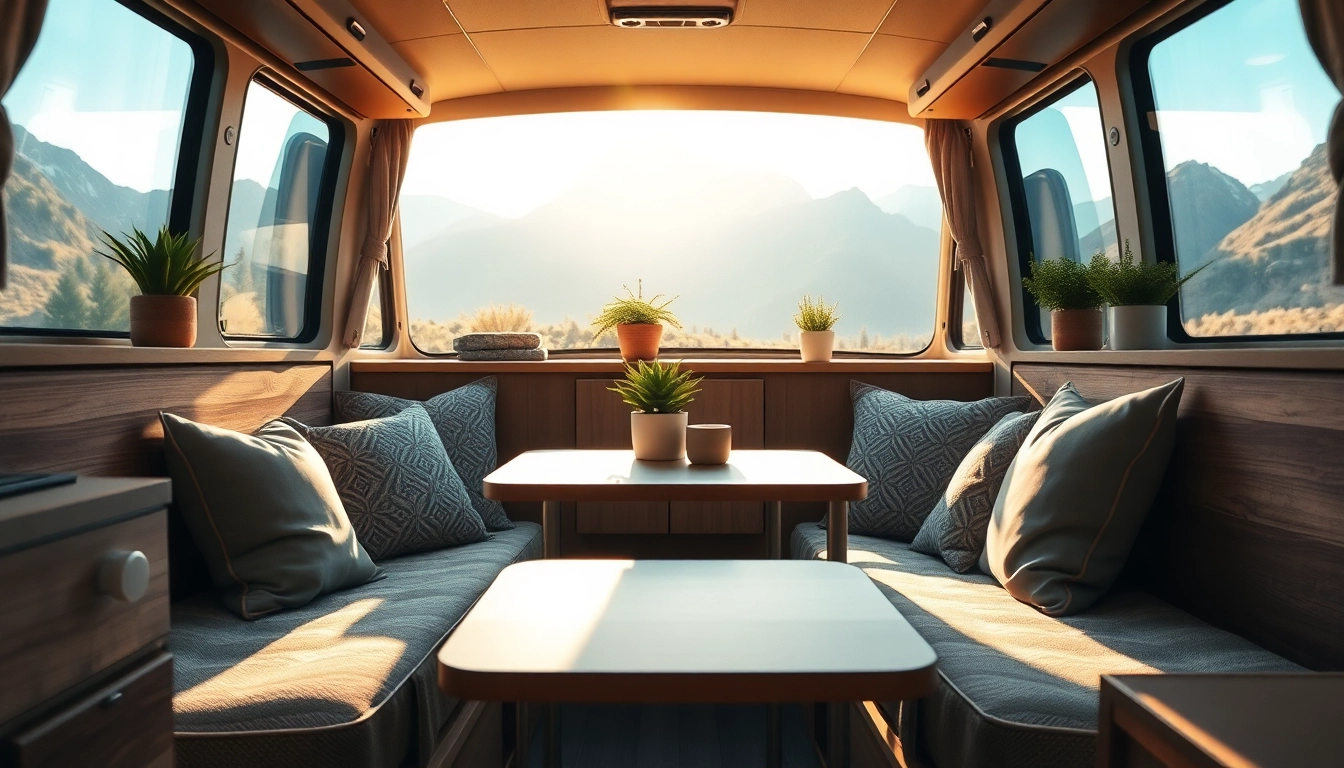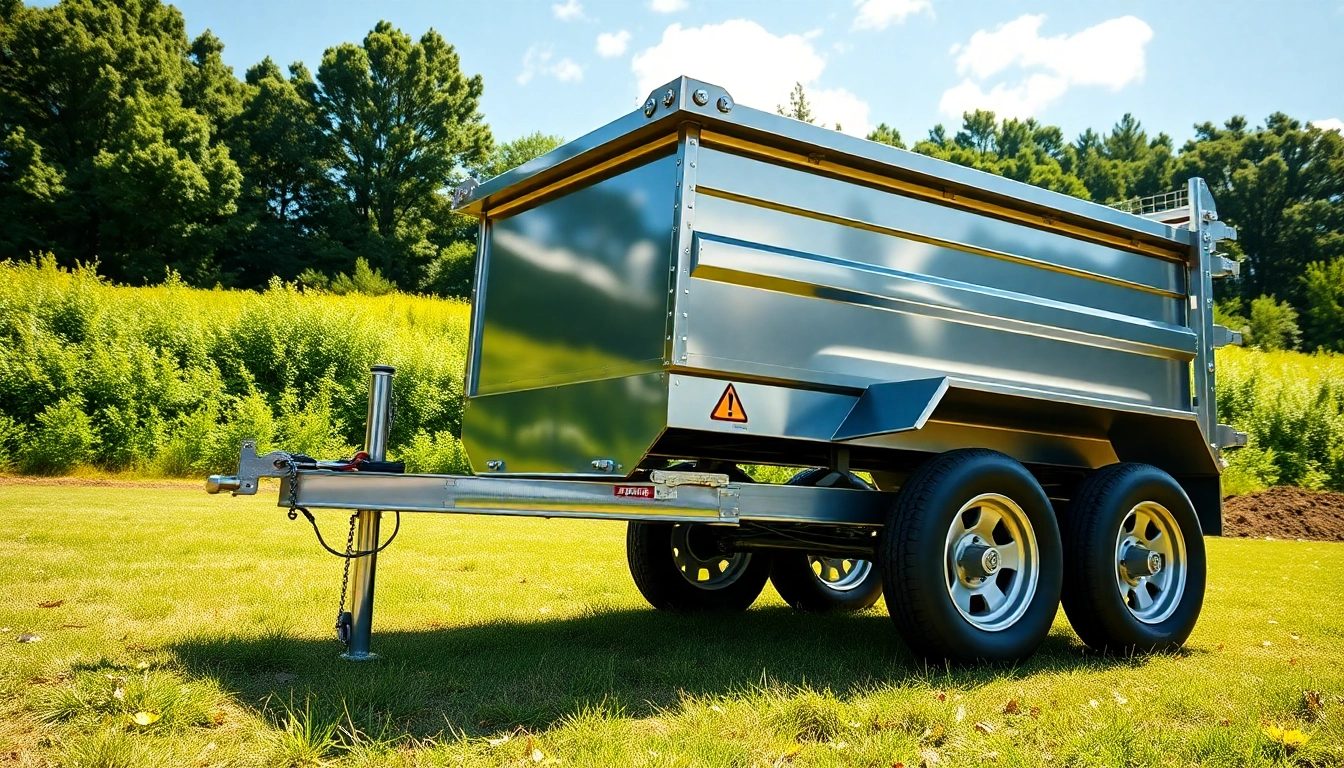Understanding the Basics of Camper Vans
In recent years, the allure of adventure has drawn many individuals and families toward living the nomadic lifestyle facilitated by camper vans. These versatile vehicles serve not only as transportation but also as comfortable, mobile living quarters. This article delves into the essential aspects of camper vans, ranging from their definition to their numerous benefits.
What is a Camper Van?
A camper van is a type of vehicle that has been designed or modified to provide living accommodations alongside transport capabilities. Typically based on a van chassis, these vehicles are equipped with sleeping and cooking facilities, making them ideal for short or extended travel adventures. The distinction between a camper van and other forms of recreational vehicles (RVs) lies primarily in their compact size, ease of driving, and accessibility to various terrains.
Types of Camper Vans Explained
Camper vans come in various configurations, each best suited to different lifestyles and travel needs. Understanding these types can greatly aid potential buyers in making an informed decision. Below are a few common types:
- Class B Camper Vans: These are the most common type of camper vans, often built on a standard van chassis, allowing for easy maneuverability. They usually accommodate two to four people and include essential amenities like a small kitchen and bathroom.
- High Roof Vans: These models provide additional height, allowing travelers to stand up inside the vehicle comfortably. This feature enhances the living experience considerably.
- Converted Vans: Many enthusiasts opt to convert standard vans into camper vans, tailoring the interior to suit their specific needs, such as installing beds, kitchens, and storage solutions.
Key Features of a Modern Camper Van
Modern camper vans are equipped with a range of features that enhance their usability and comfort. Key features to consider include:
- Compact Kitchen: Most camper vans come with a kitchenette equipped with a stove, sink, refrigerator, and storage for cookware and food.
- Bedding Options: Many models incorporate foldable beds, Murphy beds, or pop-top roofs that contain sleeping areas, maximizing space while ensuring comfort.
- Bathroom Facilities: Depending on the model, some camper vans include compact bathrooms with showers and toilets, essential for longer trips.
- Eco-Friendly Systems: Modern camper vans increasingly feature solar panels, energy-efficient appliances, and water-saving devices, making them more environmentally friendly.
The Advantages of Owning a Camper Van
Investing in a camper van comes with numerous benefits that cater to a variety of lifestyles. Here are some of the main advantages:
Cost-Effectiveness of Camper Vans
One of the most significant advantages of owning a camper van is the cost savings they can provide over time. While the initial investment might be significant, consider the savings on accommodations, dining, and transportation costs during travels. Campgrounds are often less expensive than hotels, and having the ability to prepare meals onboard can greatly reduce food expenses. Additionally, camper vans typically have better fuel economy compared to larger RVs.
Flexibility and Freedom in Travel
Owning a camper van offers unparalleled flexibility in planning your journeys. Whether you prefer national parks, bustling urban environments, or secluded beaches, a camper van allows you the freedom to choose your destination and set your schedule. You can easily change your plans on a whim, exploring hidden gems along the way without the need for prior reservations.
Community and Lifestyle Benefits
The camper van lifestyle fosters a unique community among like-minded travelers. Many owners report a deep sense of connection with others who embrace the nomadic lifestyle. Camper van meetups, online forums, and social media groups provide platforms for sharing tips, experiences, and travel itineraries. This lifestyle not only encourages exploration but also promotes sustainable living through mindful travel practices.
How to Choose the Right Camper Van for You
Choosing the perfect camper van can be a daunting task given the multitude of options available. Here are some essential considerations to guide your decision-making process:
Evaluating Your Travel Needs
Begin by assessing your primary travel needs. Consider how many people will be traveling with you, the typical length of trips, and the type of destinations you prefer. Will you primarily use it for weekend getaways or extended road trips? Your travel style will directly influence the type of camper van that suits you best.
Considerations for Size and Layout
The size of your camper van can impact both your driving experience and your living comfort. Smaller vans are easier to drive and park but may lack space for amenities. Conversely, larger vans can provide more comfort but may be challenging to navigate in tight spaces. Consider layouts that maximize space effectively—integration of convertible furniture (like beds that fold away) can significantly enhance usability.
Budgeting for Your Camper Van Purchase
Establishing a budget is crucial when purchasing a camper van. The price range can vary greatly, from older used models starting at just a few thousand pounds to high-end new models that can exceed £200,000. Factor in additional costs like insurance, maintenance, and modifications when determining your overall budget. It’s often beneficial to prioritize must-have features and remain flexible on non-essential aspects to stay within your budget.
Maintenance Tips for Your Camper Van
Owning a camper van requires diligent maintenance to ensure longevity and reliability. Here are some best practices for keeping your vehicle in top condition:
Preventative Maintenance Practices
Preventative maintenance goes a long way toward avoiding costly repairs. Establish a routine maintenance schedule that includes regular checks on the engine, tires, brakes, and fluid levels. Additionally, inspect and clean the exterior and undercarriage to prevent rust and damage from road debris or salt. Regularly checking the seals around windows and doors can help prevent leaks and moisture buildup.
Common Repairs and Troubleshooting
Being aware of common issues can help owners troubleshoot effectively. Some frequent repairs for camper vans include addressing electrical problems, refrigerator issues, and plumbing concerns. Familiarize yourself with the typical systems in your van and consider obtaining a basic toolkit for minor repairs. Online forums and owner manuals can be valuable resources for DIY repairs.
Seasonal Tips for Preparing Your Camper Van
Seasonal preparations can ensure your camper van is ready for different weather conditions. Before winter, consider installing antifreeze in plumbing systems and checking battery sources, especially if your camper is in storage. In summer, ensure your air conditioning works and that window shades block excessive sun exposure. Regularly rotate tires and check tire pressure to adapt to seasonal demands.
Future Trends in Camper Van Design
As technology and consumer needs evolve, so do camper van designs. Below are some emerging trends shaping the future of these vehicles:
Sustainable and Eco-Friendly Innovations
As awareness grows around environmental concerns, manufacturers are focusing on sustainability in camper van designs. This includes the use of eco-friendly materials, solar power systems, and energy-efficient appliances. Many new models are equipped with systems that allow for off-grid camping, offering power sustainability and decreased dependence on fossil fuels.
Technological Advancements in Camper Vans
Smart technology is making its way into camper vans, enhancing convenience and safety. Features such as integrated GPS systems, backup cameras, and advanced driver-assistance systems are becoming common. Additionally, the rise of connectivity at campsites allows for Wi-Fi access, enabling remote work opportunities while on the road.
Shape of the Future: Modular Designs and Flexibility
Modular designs are gaining popularity, allowing owners to adapt their camper vans based on personal needs. For instance, some manufacturers offer add-on kits that enable users to customize layouts, add storage solutions, or even change the type of amenities based on their travel plans. This adaptability can appeal to a wider audience, catering to both casual travelers and full-time van lifers.



